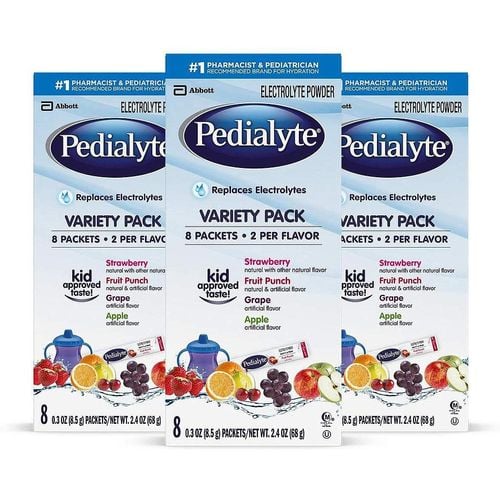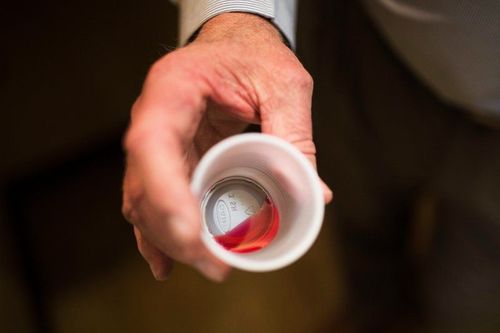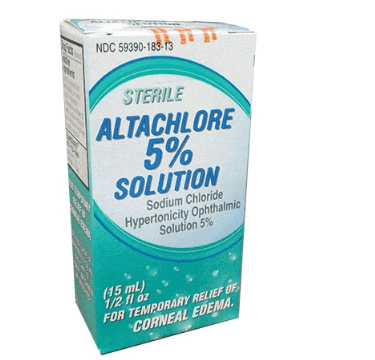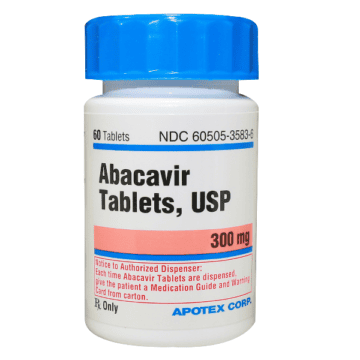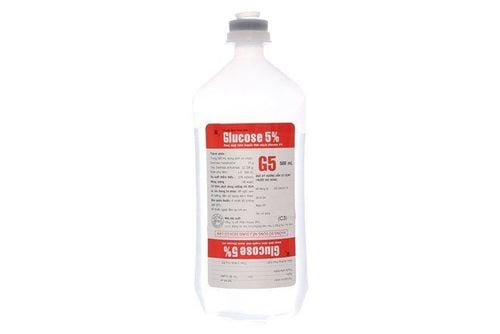This is an automatically translated article.
Posted by Master, Doctor Mai Vien Phuong - Department of Examination & Internal Medicine - Vinmec Central Park International General HospitalNorovirus is a highly contagious stomach and intestinal virus. It is easily transmitted through direct or indirect contact with an infected person. It can spread rapidly in areas such as hospitals, schools, and day care centers.
The telltale symptoms of norovirus are vomiting and watery, non-bloody diarrhea. These symptoms usually begin within 12 to 48 hours of exposure and can last up to three days. Most people recover completely.
1. How is Norovirus contagious?
Norovirus is very contagious. Anyone can get a virus, and that doesn't protect you from getting it again. Here's why it's so contagious:It only takes 18 virus particles to make you sick. The virus has a short incubation period. That means you can spread it before you know you're sick. This virus is hardy and can survive outside your body for several days. You can continue to spread the virus for two weeks or longer after your symptoms go away. You can have the virus, but not have any symptoms. Even so, you still have the ability to spread it around. Several things can increase the risk of infection, such as:
Spending time in a hospital, nursing home, school or day care center. Viruses spread especially quickly in close periods of time. For this reason, your risk may also be higher on a cruise ship, hotel or in a resort.
Contact with someone who is sick, especially if you are caring for a sick person and come into contact with their vomit or stool.
Sharing food, drinks, plates, cups or utensils with someone who is sick.
Eating food or drinks prepared under unsanitary conditions.
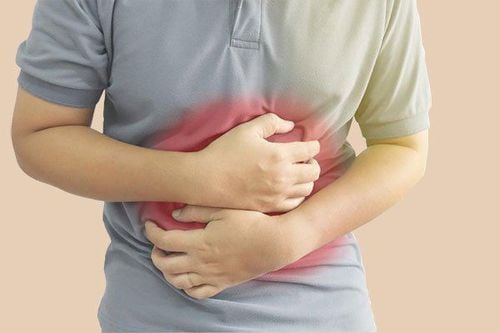
2. How is Norovirus transmitted?
Norovirus is estimated to cause 60% of all cases of acute gastroenteritis due to known pathogens. A pathogen is anything that can cause disease, like bacteria or viruses.Transmission is easy because only a small amount of the virus can cause an infection.
With its short incubation period, you can spread it before you even know you're sick. And you can be contagious for several days to months after the symptoms go away. If you have other health problems, you may be contagious for much longer.
Pathogens can tolerate extreme heat and cold and can live outside the body for several days.
The main mode of transmission of norovirus is the fecal-oral route, but it can also be spread through droplets of vomit. This can happen after person-to-person contact, such as when you shake hands. If you don't wash your hands thoroughly, you only need to touch your mouth once. It can spread quickly in healthcare settings.
Transmission can also occur indirectly, such as when food, water or surfaces are contaminated. Just touching an infected doorknob or cell phone can start a chain reaction. When someone vomits, the virus can get into the air, so if it gets into your mouth, it can get into your intestinal tract.
Norovirus spreads easily in large groups of people.
Norovirus during pregnancy
Getting norovirus while you are pregnant will not harm your baby or your own health in the long run.
If you experience diarrhea and vomiting while pregnant, you should contact your doctor immediately. It could be a case of norovirus, but it could be something else.
Take steps to avoid dehydration, which can be a serious complication of norovirus. When you have vomiting and diarrhea, drink plenty of fluids, like Pedialyte, but limit beverages that contain caffeine.
3. How does Norovirus cause disease?
It all starts when you come in contact with the virus. It could be stalking your food. Or maybe you touched an infected light switch or held someone's hand before touching your mouth or nose. That's when those tiny particles enter your body.You don't know when the particles go down your esophagus. They pass through your stomach and into your intestines. The gut is the sweet spot for norovirus, where rapid reproduction seems to take place. Meanwhile, your immune system is alerted to the presence of foreign invaders. It directs an army of antibodies to destroy them.
Most of the time, your antibodies will declare victory over the virus within one to three days. But your body can continue to shed the virus for up to two weeks or longer.
Norovirus with rash
Rash is not usually a symptom of norovirus.
In some cases, the virus can cause a rash (urticaria). It can start with itching and quickly turn into red marks. You know it's a rash when you press on the bump and its center turns white. Hives can be treated with antihistamines. You can also apply a cold compress for temporary relief from itching.
Newborns with diarrhea are prone to diaper rash. Diarrhea stools can carry certain digestive enzymes that irritate the skin. You can reduce this irritation by changing your baby's diaper often and cleaning the skin thoroughly with warm water. Using a skin protectant cream after each diaper change can also help. Avoid baby wipes that contain alcohol. Consult your pediatrician if the rash continues to worsen or the infant's skin is bleeding.
Severe diarrhea can also cause an adult rash around the anus. Keep the area as clean and dry as possible. Wash with mild soap and warm water. Call your doctor if the skin in this area blisters or drains. The rash will go away once the diarrhea stops.
If you have a gastrointestinal illness accompanied by a severe rash, it is not necessarily the case with norovirus. See your doctor for a diagnosis.
Norovirus Recurrence
With some diseases, a single infection gives you lifelong immunity. Vaccines can provide immunity to others. But that is not the case with norovirus. There is no vaccine, and having it once won't keep you from getting it again. In fact, you can get it many times throughout your life.
If you have just experienced an episode of norovirus, it is not clear how long you will have temporary immunity. However, there are different varieties, so there's no guarantee that you won't have another batch shortly.
If the virus is moving around your home or workplace, take precautions to reduce the risk of reinfection.
Example:
Wash hands thoroughly and often, especially after using the bathroom, changing diapers, or caring for someone who is sick. Wash your hands before preparing or eating. If soap and water are not available, use alcohol-based hand sanitizer.
Try not to touch your face with your hands.
Do not share eating utensils, cups or plates.
Wash fruits and vegetables before eating.
Avoid raw seafood.
When possible, stay away from infected people. Stay home when you are sick.
If you have frequent vomiting or diarrhea, see your doctor to make sure it's norovirus. They may collect a stool sample to confirm the diagnosis.

4. Norovirus recovery time
Symptoms usually begin about 12 to 48 hours after you are exposed to the virus. In healthy adults, norovirus is usually not a serious problem. Symptoms can last from one to three days. Most people recover completely.Symptoms can severely affect infants. There may be more vomiting and diarrhea. That can lead to dehydration. Whenever possible, oral rehydration therapy, such as Pedialyte, is preferred and recommended. Depending on the severity of symptoms, intravenous fluids and other supportive measures may be needed. Recovery time may be longer.
It may also take longer to recover if you have a weakened immune system or another health problem that makes it harder to fight the virus. Worldwide, norovirus claims the lives of 50,000 childrenTrusted Source each year. Most of these deaths occur in developing countries.
Older adults have weaker immune systems, often with other chronic diseases. In these cases, more dehydration may occur. Hospitalization is sometimes required and it can take several weeks for the body to clear the virus on its own
Trusted Source estimates that each year in the United States, 56,000 to 71,000 hospitalizations and 570 to 800 deaths are may be due to norovirus.
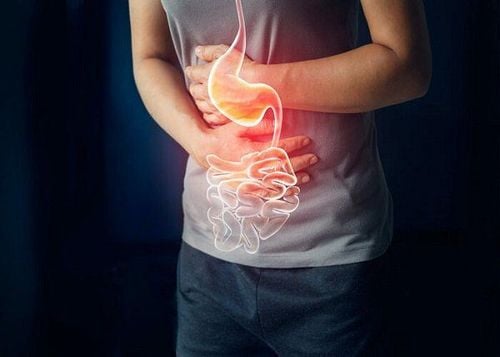
Department of Endoscopy - Gastroenterology is one of the key specialties at Vinmec International General Hospital. For timely examination, advice and treatment of digestive diseases, you can contact Vinmec Health System nationwide or book an appointment on the website for service.
Please dial HOTLINE for more information or register for an appointment HERE. Download MyVinmec app to make appointments faster and to manage your bookings easily.
ReferencesBlack RA, et al, (2003). Over-the-counter medications in pregnancy. aafp.org/afp/2003/0615/p2517.html
afp20030615p2517-t4 Centers for disease control and prevention. (2011). Norovirus in healthcare facilities fact sheet [Fact sheet]. cdc.gov/hai/pdfs/norovirus/229110-anorocasefactsheet508.pdf Cholera - Vibrio cholerae infection: Rehydration therapy. (2014). cdc.gov/cholera/treatment/rehydration-therapy.html





